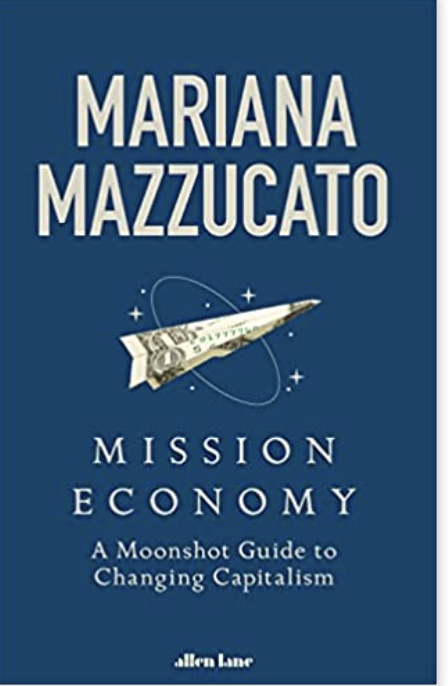
Governments should increase their trust in decentralised competition


Even before the advent of Covid-19 pandemic in 2020, capitalism was stuck, as it had no answers to a host of problems, including disease, inequality, the digital divide and, perhaps most blatantly , the environment crisis.
Taking inspirations from the “Moonshot” programmes which successfully co-ordinated public and private sectors on a massive scale, influential thinker Marina Mazzucato calls for the same level of boldness and experimentation to be applied to the biggest problems of our time.
She argues, rethink the capacities and role of government within the economy and society, and above all recover a sense of public purpose. Mission Economy, whose ideas are already being adopted around the world, offers a way out of business to a more optimistic future.
Government has increased their trust in decentralised competition within markets.
Mazzucato recommends goal-oriented innovation as the way forward for the world.
Mission Economy, whose ideas are already being adopted around the world, offers a way out of our impasse to a more important future.
Part policy critique, part manifesto, Mission Economy reinvigorates the role of the state for tackling today’s complex problems, demanding vision, ambition and public purpose in economic strategy.
As the persistent constraints continue to limit green policy national and international levels, Mazzucato’s approach unlocks much needed systemic transitions and work at the global scale.
Mazzucato diagnose our dysfunctional form of contemporary capitalism, fuelled by fuelling climate crisis. The finance sector short-termism, the financialisation of business and value, fossil based dependency and slow or absent governments lamenting the UK’s :infantilised civil service and the depletion of Western governments through deregulation and outsourcing. Mazzucato highlights a toxic, self-fulfilling prophecy at play.”the less the government does, the less it takes risks and manages., the less capacity it develops, and the more boring it is to work for.
In UK alone the undervaluation of off-shore wind farms due to cost miscalculation, to the UK’s failed COVID-19 track and trace system- she demonstrates the liimists of outsourcing and privatisation, arguing instead for bold public investment at the high-risk, uncertain , experimental phases of innovation.
She says the Apollo mission to put a man on the Moon, from its start in 1962, President John F Kennedy was explicit that this mission would be hard, cost a lot of money, the things could go wrong, but that its beneficial spillovers for society would be worth it. The mission had purpose and inspired in generation, innovation occurred across computing communications and electronics,, bringing about the IT revolution, innovation in textile and nutrition and still with us today, Mazzucato identifies six key lessons for tackling complex problems from Apollo, developing them into principles for a new political economy, vision and a strong sense of purpose, risk taking and innovation, organisational dynamism, cross-sectorial collaboration, outcomes-based budgets and long-term horizons, dynamic public-private partnerships.
Mission Economy: A Moonshot Guide to Changing Capitalism by Marina Mazzucato, Allen Lane £20
